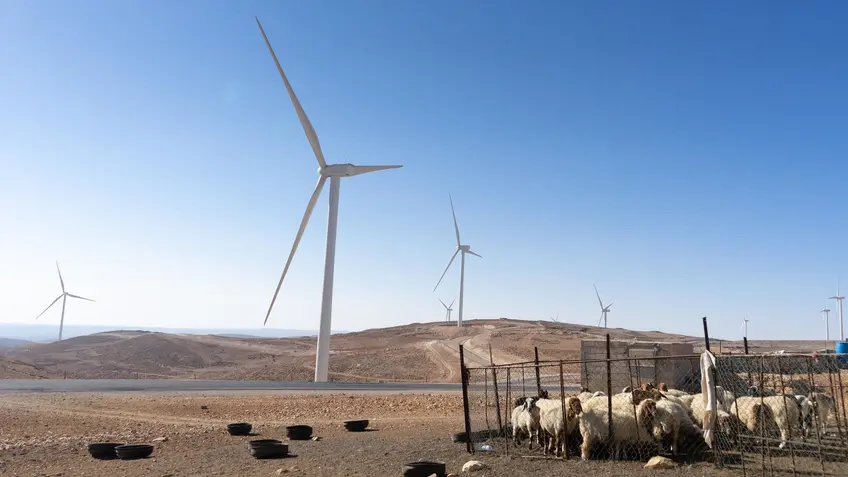Leaving No One Behind: Online Peer-to-Peer Event on Social Challenges of Climate Change in the Agricultural Sector
Agriculture is key to addressing climate change, being one of the sectors most affected by it while also offering high potential for mitigation and adaptation actions. In fact, most requests for support received by the NDC Partnership cover the agriculture sectors.
However, efforts to shift towards low-carbon, climate resilient economies may affect farmers’ livelihoods in rural areas already subject to work deficits and exclusion from policies and investments. So-called “just transitions” are therefore needed to ensure no people working in food systems are left out of climate policies and strategies, especially small-scale food producers, women, youth, and indigenous and tribal peoples.
Recognizing this, the NDC Partnership and the Secretariat of the Thematic Working Group on Agriculture, Food Security and Land Use at the Food and Agriculture Organization of the United Nations (FAO), together with the International Labour Organization (ILO), organized a two-day online event on the 16th and 17th of June for countries to exchange experiences and discuss possible ways forward to address the social and economic challenges of climate change in the agriculture sectors.
On the first day of the event, participants gained insight into the topics of just transition and inclusive growth. Following introductory remarks by FAO and the NDC Partnership, Dr. Nizar Jamal Haddad, Director General of Jordan’s National Agriculture Research Center shared some of the challenges the country is facing, as well as practical ways of responding to them.
Ms. Jeongha Kim from the FAO’s Green Jobs Programme drew a more general picture of the social challenges experienced in rural areas, including a lack of resources, while also highlighting opportunities for increased investments in agricultural technologies from the private sector.
Countries expressed a strong interest to work on the issues of inclusive growth and just transition in their requests for support to the NDC Partnership, as explained by Mr. Thibaud Voïta, with 51 countries working or intending to work on these issues.
Mr. Moustapha Kamal Gueye, representing ILO, emphasized the sensitivity of rural jobs to environmental degradation and heat stress, explaining how these can result in mass migration and working time loss. All panelists agreed that the COVID-19 crisis should be seen as an opportunity to rethink our economies and to build back better.
On the second day, participants joined in one of two small group discussions on the topics of “Just Transitions in rural areas through diversified economies” and “Green work in rural areas,” jointly facilitated by experts from FAO and ILO.
The first group highlighted that on-farm and off-farm diversification has the potential to advance an inclusive and just transition that generates decent work and economic opportunities, including for disadvantaged groups, while contributing to climate change adaptation and mitigation.
An example from Senegal illustrated how enhancing the capacities of women’s organizations on certain topics—including administrative and management skills and sustainable forest planning and management—helped to diversify the women’s livelihoods to food processing, allowing sustainable income generation. Using a value chain approach, the project was successful in empowering a disadvantaged group by taking into account all three dimensions of sustainable development—economic, environmental, and social.
Furthermore, an example from Indonesia highlighted the importance of healthy soils in the diversification of practices and the need to complement these practices with food security policies, ensuring adequate availability and accessibility of food. The ensuing discussion underscored the importance of ensuring a holistic approach to diversification that considers issues like climate change, environment, and socio-economic factors across rural sectors. The just transition processes need to be inclusive and based on social dialogue in order to contribute to both climate change mitigation and adaptation, while delivering decent work benefits.
The second group discussed how, similar to diversification, green jobs have the potential to achieve multiple benefits as they create immediate temporary employment while restoring ecosystems through labor intensive techniques. Building on the previous day’s presentation, Jordan introduced its “Employment-Intensive Investment Programme” for job creation and discussed other initiatives aimed at creating decent jobs and enhancing skills development through the provision of improved, climate-resilient infrastructure. Labor-intensive measures are key in Jordan, a country that has seen an unprecedented influx of refugees in recent years. FAO, ILO, and UNDP agreed on the importance to focus on empowering vulnerable groups.
Morocco highlighted concrete examples of the ways in which the country is promoting women-led cooperatives in the agriculture sector and shared insights on how to create green jobs in a post COVID-19 scenario. This exchange brought out other essential aspects of green works, such as adapting interventions to countries or engaging a variety of partners in the process.
Through discussion, this collaborative event provided inspiration on how to ensure that transitions towards low-carbon, climate-resilient economies are just, inclusive, and leave no one behind, paving the way for additional fruitful exchanges in the future. Agriculture and food systems have an important role to play in mitigating and adapting to climate change, but it is essential to shift to more sustainable practices in order to effectively tackle its impact. FAO is actively working on the global agriculture sector’s transition; this will foster sustainable agricultural production systems that will generate more green jobs and decent work opportunities for rural communities, while also contributing to the achievement of the Paris Agreement and the Sustainable Development Goals.
This blog was written by Marie Hermes, an intern at the FAO climate change team, with input from the organizers of the event.
